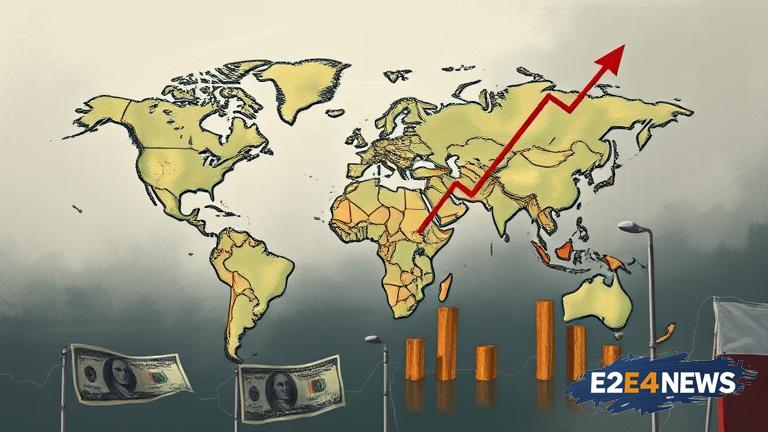The current global economic landscape is marked by rising interest rates and inflation, leading to increased uncertainty for businesses and individuals. The recent surge in interest rates has made borrowing more expensive, affecting companies’ ability to invest and expand. This, in turn, has led to a decrease in consumer spending, as people become more cautious about their financial situation. The rising inflation rate has also eroded the purchasing power of consumers, making it more difficult for them to afford essential goods and services. The global economy is heavily influenced by the actions of central banks, which have been raising interest rates to combat inflation. However, this has led to a strengthening of currencies, making exports more expensive and affecting trade balances. The impact of these economic trends is being felt across various industries, including manufacturing, construction, and retail. Companies are struggling to maintain profitability, and many are being forced to reduce their workforce or cut back on investments. The situation is further complicated by the ongoing COVID-19 pandemic, which has disrupted global supply chains and led to increased costs for businesses. The economic uncertainty has also led to a decrease in investor confidence, resulting in a decline in stock markets and a decrease in investment in emerging markets. Furthermore, the rising interest rates have made it more expensive for governments to borrow, leading to increased debt servicing costs and reduced fiscal space. The situation is not uniform across the globe, with some countries being more affected than others. For example, countries with high levels of debt, such as the United States, are more vulnerable to the effects of rising interest rates. On the other hand, countries with low debt levels, such as Australia, are better positioned to weather the economic storm. The International Monetary Fund (IMF) has warned that the global economy is facing a period of heightened uncertainty, and has called for policymakers to take coordinated action to address the challenges. The World Bank has also expressed concerns about the impact of rising interest rates on developing countries, which are often heavily reliant on foreign investment. In conclusion, the global economy is facing significant challenges due to rising interest rates and inflation, and it is essential for policymakers to take decisive action to mitigate the effects and promote economic stability. The situation requires careful monitoring, and it is crucial for businesses and individuals to be prepared for the potential consequences of these economic trends.
